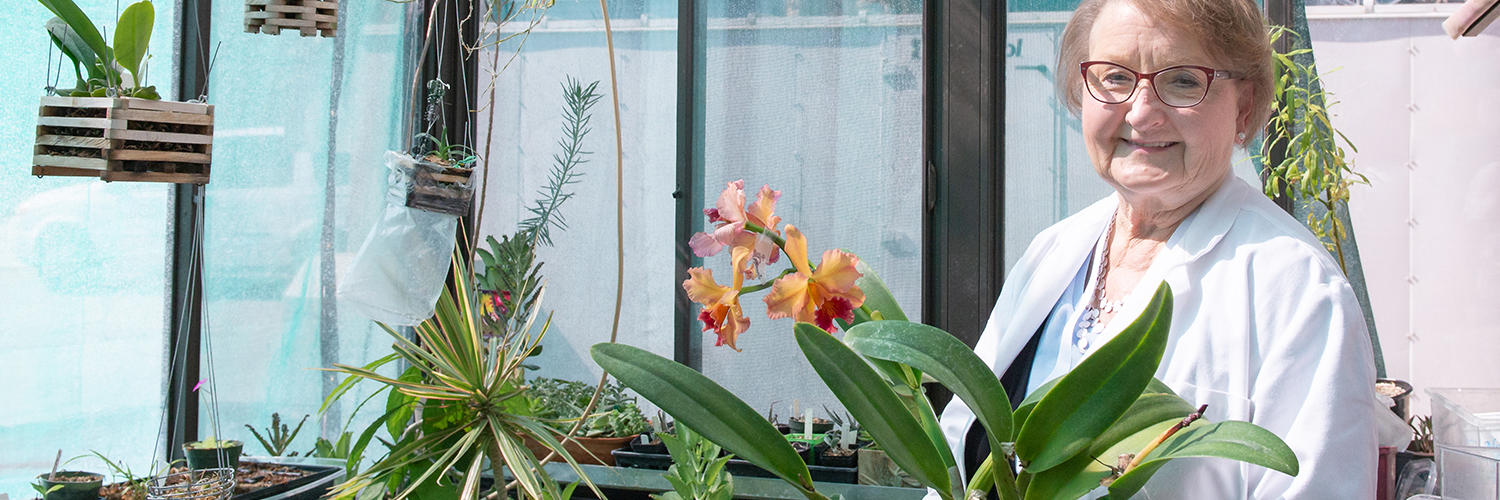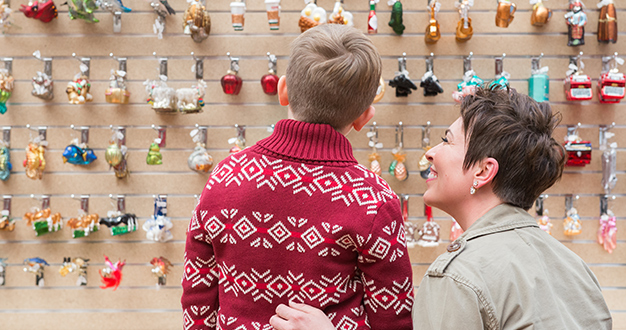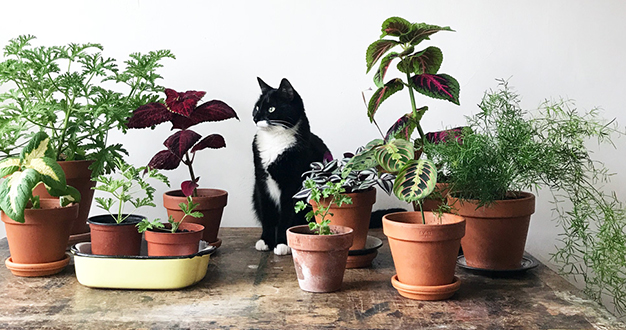
Our annual Holiday Gala is just around the corner, and this year we’re excited to partner with Omaha’s Henry Doorly Zoo & Aquarium in support of the incredible work taking place there. Margaret From, Director of Plant Conservation at the zoo, will join us for the evening to share her team’s exciting research – work that takes her from the wide-open prairies of western Nebraska to the deepest rainforests in Madagascar. Margaret has a true passion for plants, and we think when you meet her, you’ll be inspired too. Recently, we had a chance to visit Margaret in her lab where she shared her thoughts on the importance of plant conservation and her dedication to saving even the rarest of species.
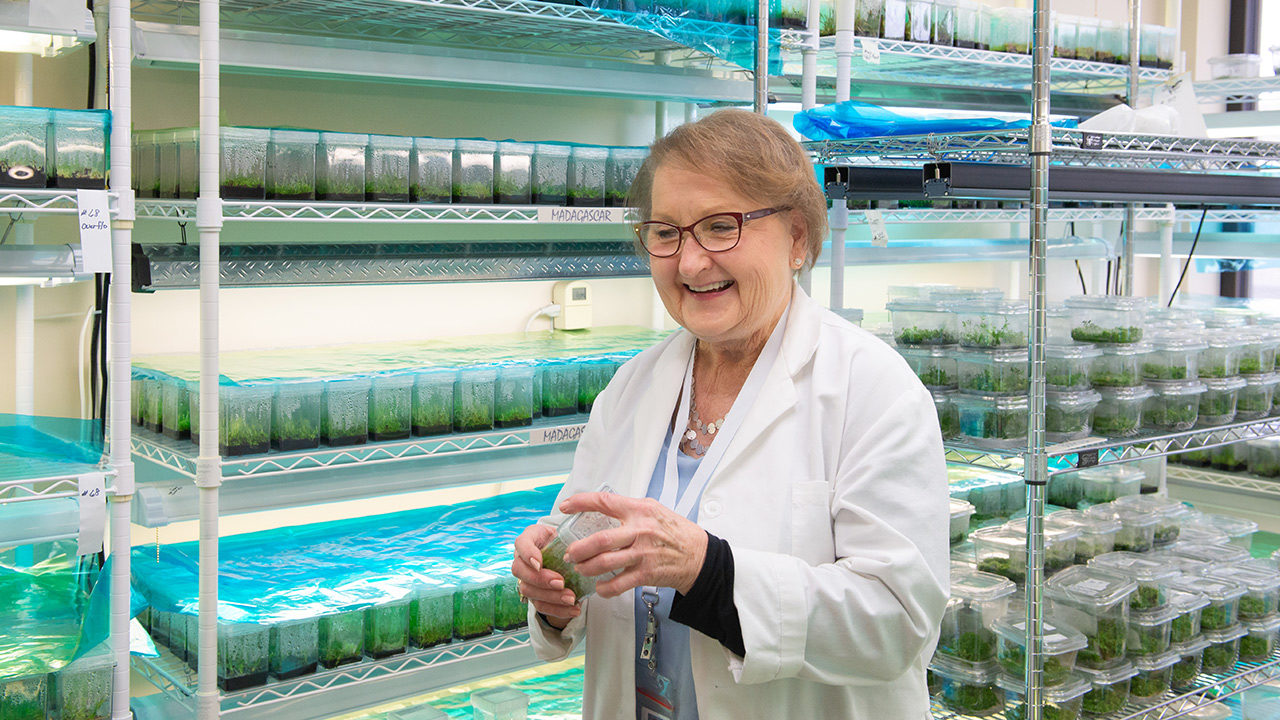
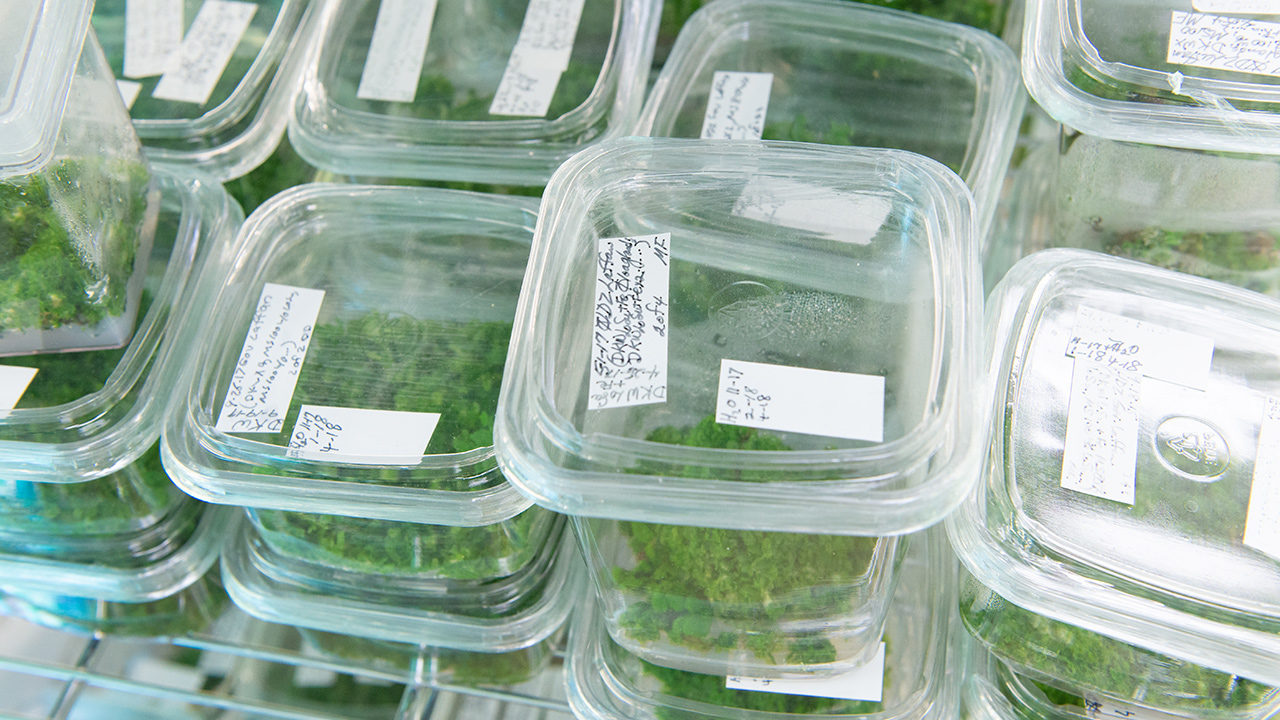
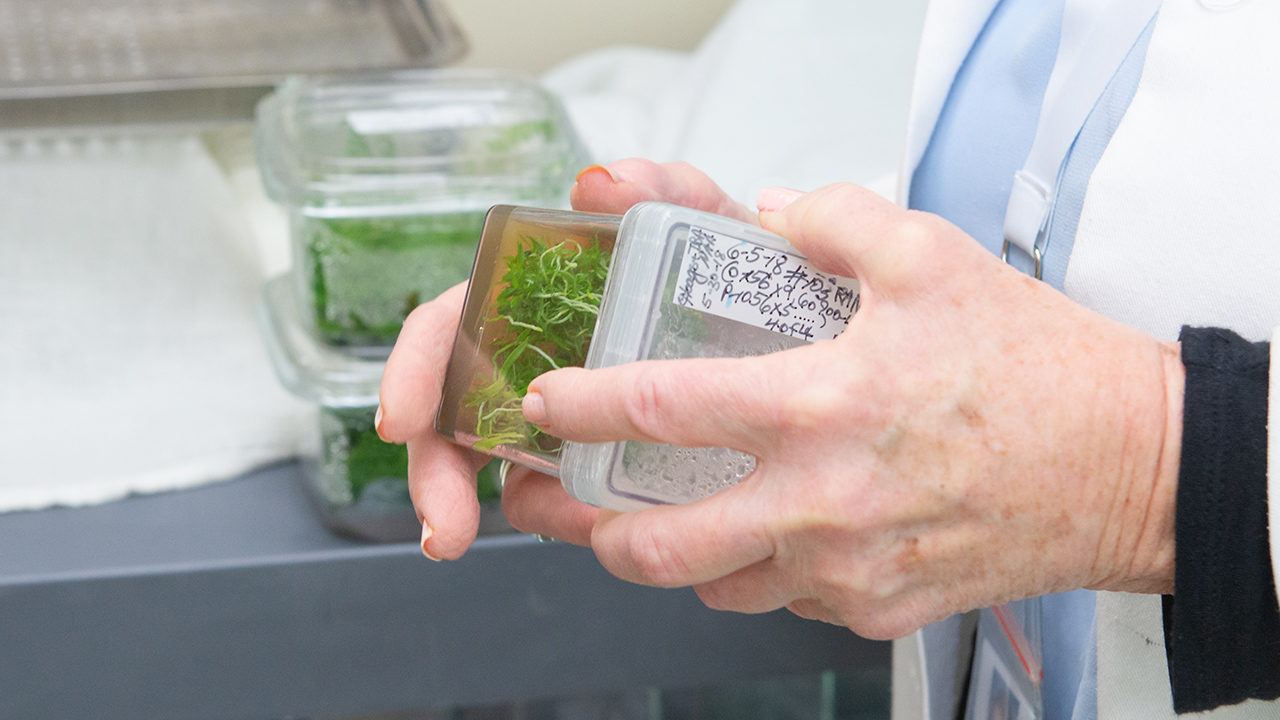
An Undeniable Love for Plants
Despite her college degrees in more people-centered interests – history, political science, Spanish, and business – it was Margaret’s science classes that continually dominated her conversations with family and friends. With their encouragement, she eventually turned her focus to plant research and began working at the zoo here in Omaha while she completed graduate studies at the University of Nebraska in Lincoln. Margaret had a special interest in tissue culture, a technique where small pieces of plants – root tips, buds, even individual cells – are cultured in a controlled laboratory to produce entire new plants. Margaret realized this technique could be used to grow endangered plant species, creating a library of plants for future research before they disappeared – and dozens of new plants could be reintroduced back into their native habitats too. When Margaret started her career there, Omaha’s Henry Doorly Zoo & Aquarium was one of only two zoos using plant tissue culture for conservation in this way. At one point, their lab had over 150 Madagascan species in cultivation – with many other regions of the world represented as well.
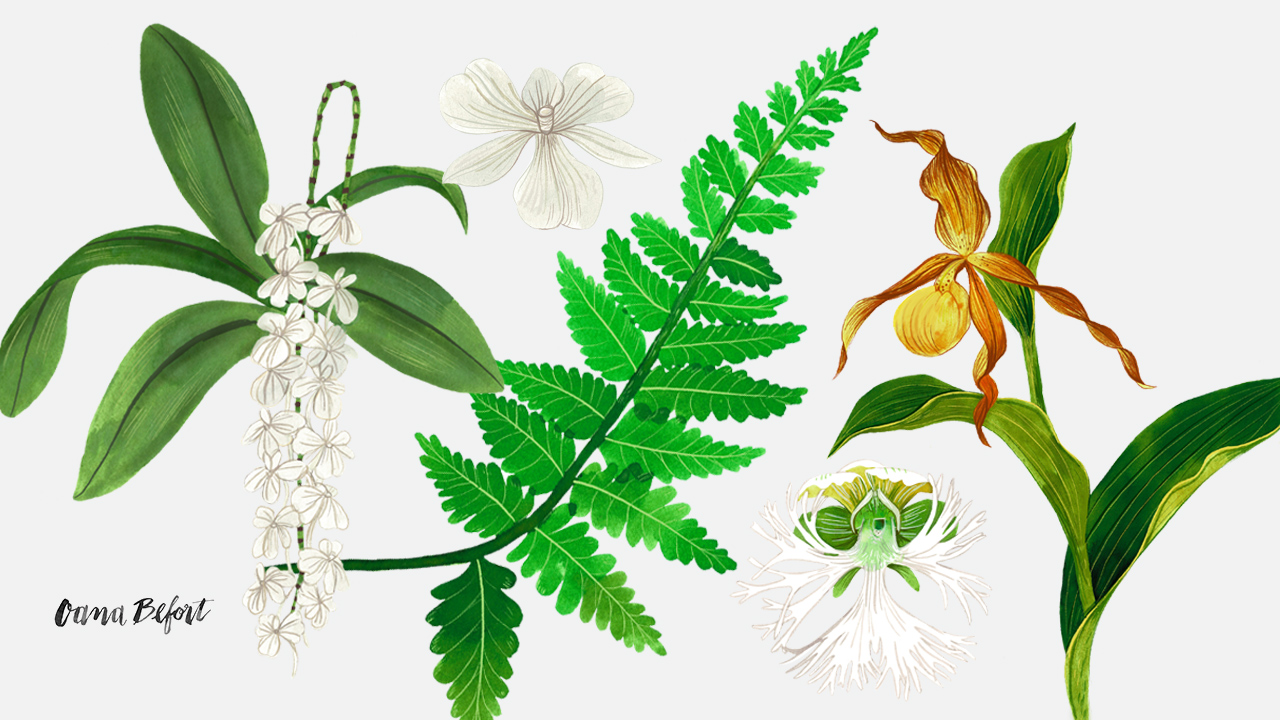
From an Omaha Lab to the Forests of Madagascar
Currently, the zoo’s Department for Plant Conservation is working to culture some of the world’s rarest plant species. For instance, Governor Laffan’s fern has been extinct in the wild since 1905, but Margaret and her team are literally bringing it back from extinction. Just a few individual plants remained in a greenhouse in Bermuda until their government contacted Omaha’s Henry Doorly Zoo & Aquarium for help. Margaret and her team were able to produce baby ferns from just a few spores, and they have since returned thousands of them to Bermuda where they’re once again thriving.
In the year 2000, while visiting Madagascar’s increasingly endangered forests, the team discovered a new species of orchid. As Margaret explains it, one seed pod from an orchid may contain hundreds of thousands of seeds. But because of the challenges faced in the wild – predators, bad weather, fungus, to name a few – only one or two of those seeds may successfully germinate. In the wild, only a single adult plant of this particular species had been known – Margaret can tell you exactly where it is – but fortunately, under the ideal growing conditions in their lab, the team is able to successfully germinate a stunning 97% of the orchid’s seeds and has now introduced over a dozen grown plants back into their native habitat.
“Governor Laffan’s fern has been extinct in the wild since 1905, but Margaret and her team are literally bringing it back from extinction.”
More locally, Margaret is studying the western prairie fringed orchid – a threatened prairie orchid that’s pollinated by an increasingly rare species of hawkmoth. Margaret’s team is the only lab that’s been able to produce this beauty from seed and reintroduce the plants back to the Nebraska Sandhills. Margaret also works with a special Cypripedium orchid, a local native that may turn out to be a new sub-species found only in Nebraska.
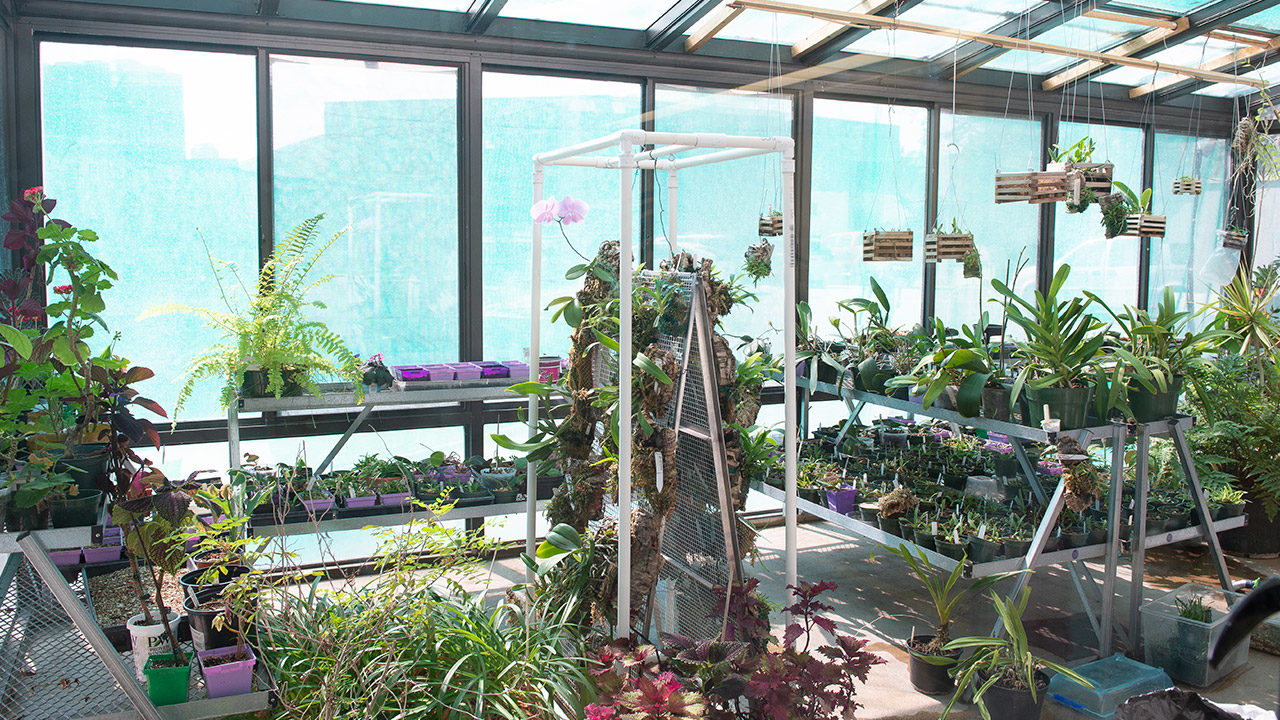
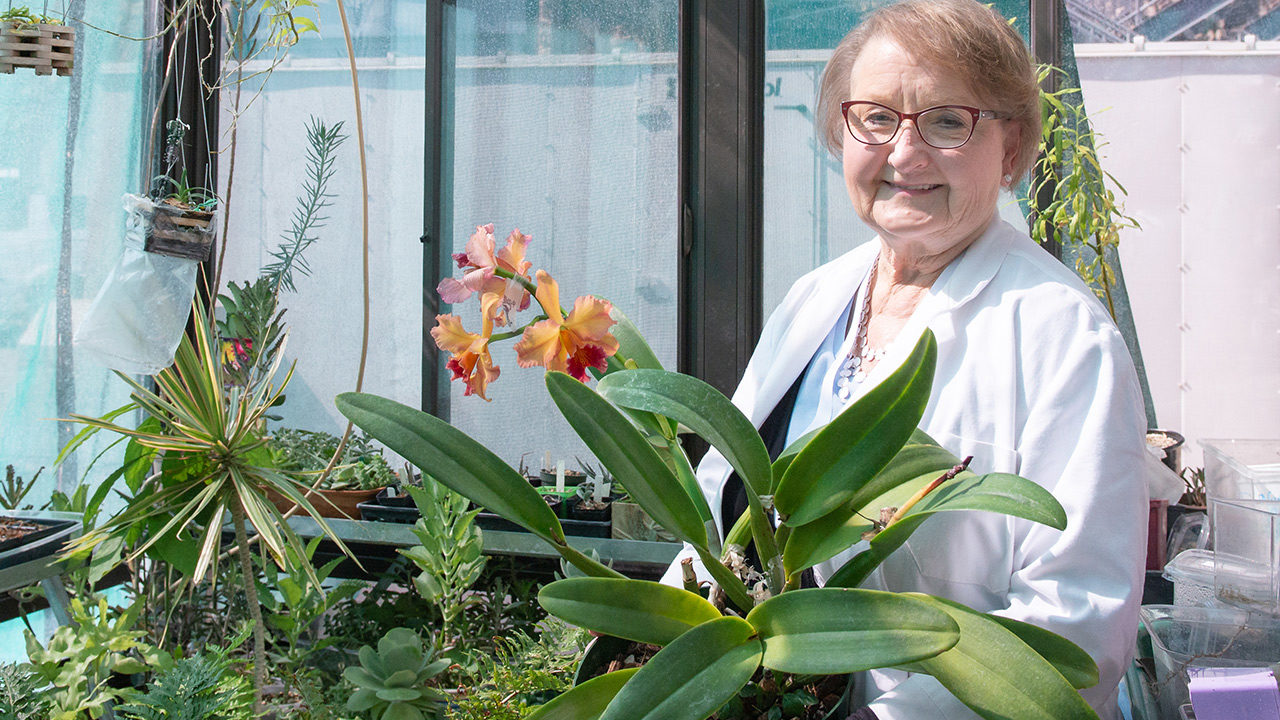
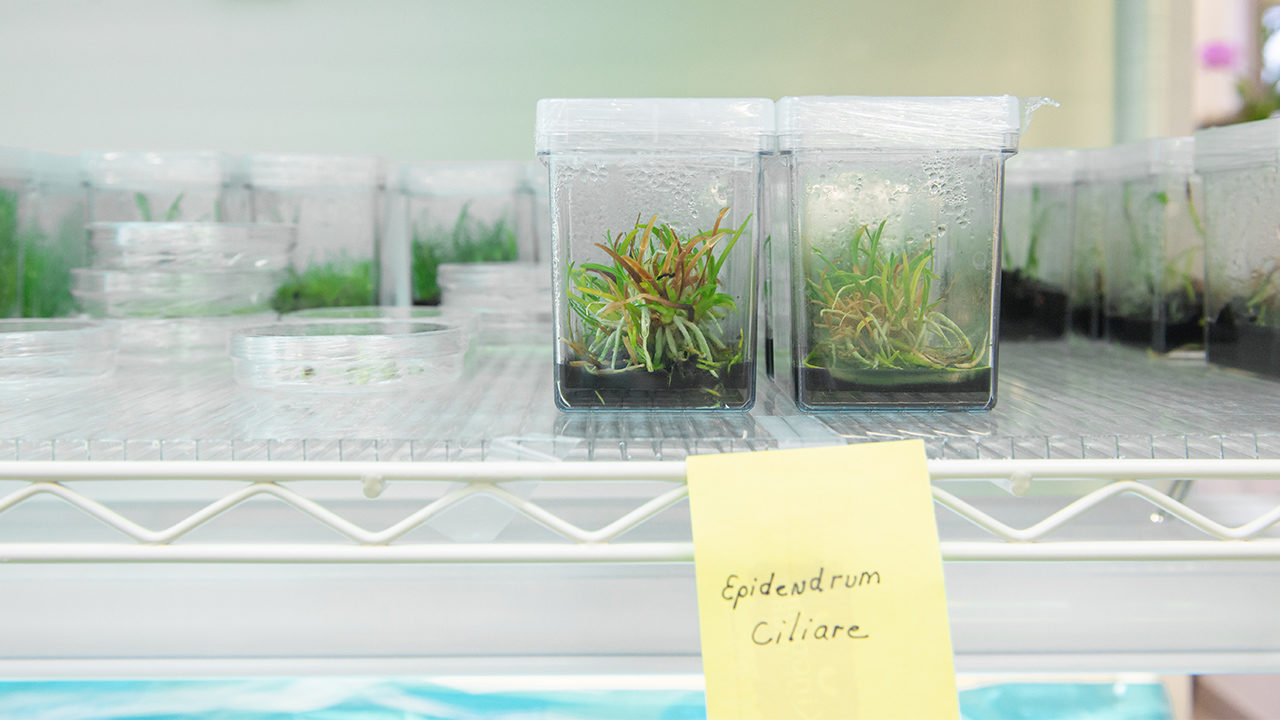
Why Plant Conservation Matters
Plants aren’t just pretty – they are truly the foundation of life on our planet. With a unique ability to produce energy from sunlight, plants provide energy for the entire food chain – passed along from herbivores to carnivores and even decomposers. Plant structures are also vital components of shelter and clothing, and they clean harmful chemicals from our soil and air. Not to mention, plants produce oxygen that sustains life on earth as well.
That’s the big picture, but it’s true of all plants. Why then do researchers like Margaret have such a passion for saving a single species of fern way off in Bermuda or one lonely orchid in Madagascar? The more we learn about the intricate relationships within an ecosystem, the more we understand the crucial role each plant plays. In talking with Margaret, we learned that researchers estimate that when just one plant species goes extinct, ten to thirty species of other plants, animals, insects, and soil microbes go extinct with it. Remarkably, Margaret believes even that may be a very conservative estimate given how little is known about the world’s soil ecosystems.
“Researchers estimate that when just one plant species goes extinct, ten to thirty species of other plants, animals, insects, and soil microbes go extinct with it.”
Each loss of a plant species could also mean the loss of an important resource that might one day feed our growing population or supply a cure for a disease in ways we don’t understand yet. Plants are already the source of half the medicines we rely on today – Margaret says there are 13 anti-carcinogenic compounds found in ground cherry alone – with an unknown number of cures remaining to be discovered throughout the plant kingdom.
Let’s Join the Effort
Join us at our Holiday Gala for an evening with friends in our Greenhouse and Christmas Shop. Enjoy complimentary wine and hors d’oeuvres, music by local band Domestic Blend, gift wrap stations, and custom gift tags by local calligrapher Cheryl Dyer. Last year, our Holiday Gala raised over $5,500 to fight local hunger through community gardening education, and we look forward to building on that success to support the incredible plant conservation efforts taking place here in Omaha. Starting November 1st, tickets will be available for $10 in advance with a limited number available at the door for $15. We hope to see you there!

